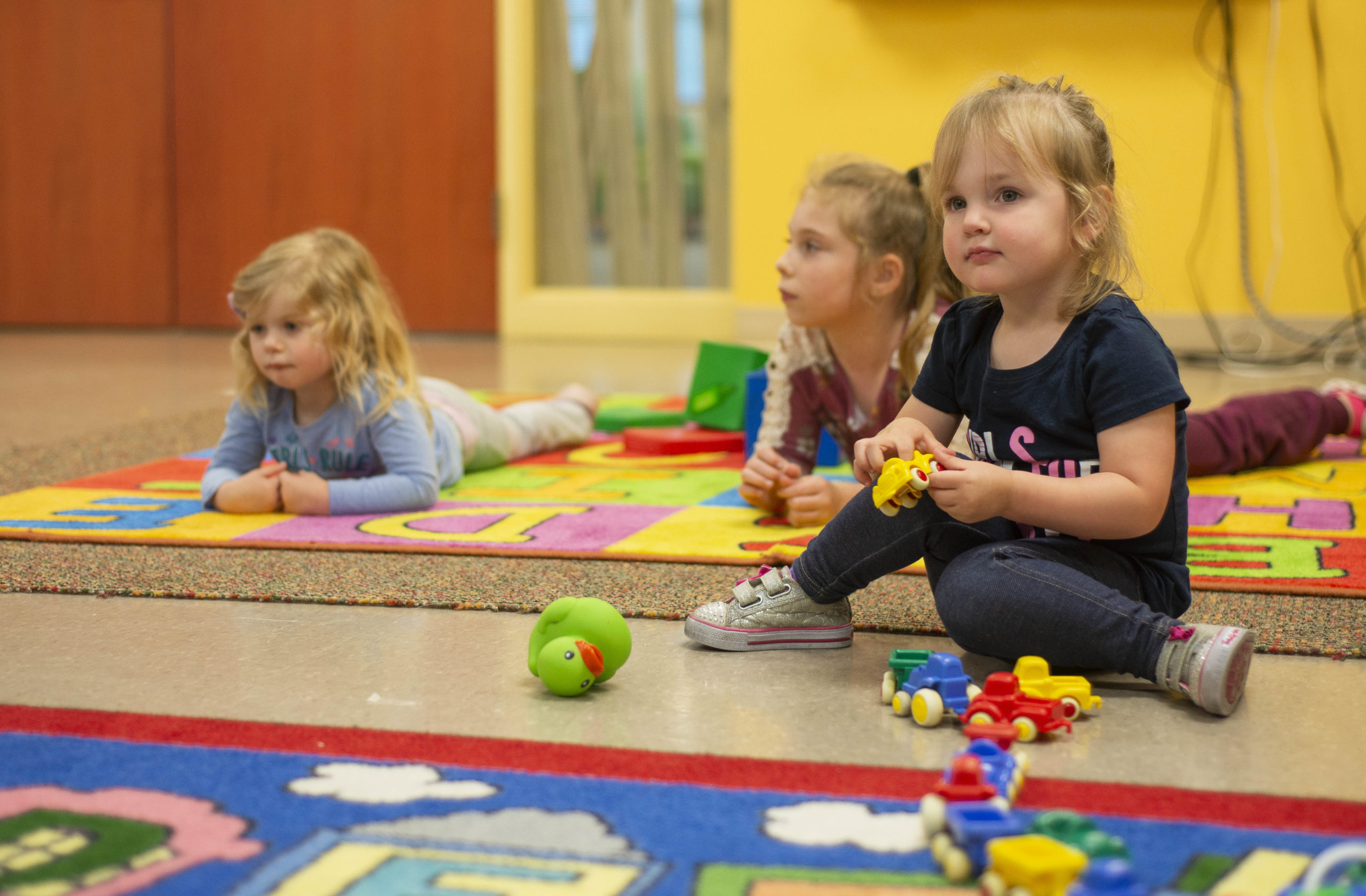News

Cradle to Career
By Laura Hill
Your 3-year-old’s crayon drawing or her early attempts to master the “Alphabet Song” may be more important than you think. In fact, her readiness for kindergarten will give her a crucial edge when it comes to success later in life.
Researchers have determined that 90% of a child’s brain development occurs between birth and 5 years of age, years when language, cognitive thinking, socialization and other crucial skills develop. If nurtured early, these basic skills lead to individual success both in school and society as well as help provide the educated individuals needed in today’s tech-driven, fast-moving workforce.
From Prenatal to Post-College
This cradle-to-career approach is guiding the direction of early childhood education in East Central Indiana and around the country.
“Kindergarten readiness is the foundation upon which everything else is built,” says Tom Kinghorn, president and CEO of the George and
Frances Ball Foundation, which has been a leader in this initiative throughout the East Central Indiana region. “If a child is ready for kindergarten, all the research shows that they are 17% more likely to be successful in high school, four times more likely to graduate from college, and 46% more likely to have a full-time job.”
Today’s jobs and those of the future, he says, require a higher level of
educational preparedness, whether that be a college degree, technical training, apprenticeships or other post-secondary education. One of the foundation’s goals is to see 60% of the region’s population with a post-secondary education.
“Typically, in education, people talk about K-12, but today, it has to start earlier and go way beyond high school,” Kinghorn says. “If you have just a high school education today, based on the requirements of the 21st century workforce, it would be unlikely that you could earn enough to be able to support yourself and your family. This is something we as a society need to step up to because this is now the reality.”
Community Stakeholders
Among those partnering to build cradle-to-career education are school corporations, city and county governments, health providers, community volunteers, private businesses, nonprofit organizations and local foundations.
In Muncie and Delaware County, BY5 focuses on early literacy through a variety of strategies, such as its Little Free Library program and
book donations. It also helps families prepare kids for kindergarten, assists in providing free preschool for families in need and other additional programs.
In Rush County, First5, launched in April 2019, is raising awareness of the importance of quality early education in the community and addressing the county’s need for additional day care spaces. Randolph County government has invested more than $220,000 in day care facilities in Winchester and Union City, partnering with the YMCA, and expects to invest more in a proposed center in Farmland.
“Randolph County has significantly identified child care as a key
component of economic development,” says Ceann Bales, executive director of the Randolph County Community & Economic Development Corporation. “There’s been a shift in mindset to the realization that economic development is more than a company. It’s a given that you need to be able to offer child care when you are recruiting.”
Business Plays Its Part
Private companies have also joined the push for expanded and improve day care and early childhood education, offering affordable day care for employees as an economic benefit for individuals, but also for companies and communities.
In Richmond, Reid Health is building a dedicated day care facility for employees that will be managed by nationally recognized KinderCare. The new facility will be conveniently located on the Reid Health campus.
“We have always supported programs such as Every Child Can Read, and I have long believed, as the husband of an educator, in the importance of early childhood education,” says Reid Health CEO Craig Kinyon. “Second, we recruit physicians on a national stage, and we needed a name brand, recognized child care center.”
The new center, expected to open before the end of 2020, will provide more than just day care but also instruction to help give kids a leg up on reading and other skills, Kinyon says. The center will be open extended hours to provide flexibility to employees whose shifts can vary, a feature that might well extend the Reid Health workforce.
“If you can work out where quality child care can be affordable and
flexible, you may attract some people who otherwise had decided to stay home,” Kinyon says.
Together, cradle-to-career stakeholders can “change the trajectory of East Central Indiana,” Kinghorn says. “So many organizations, schools and other foundations are doing good work. There are a lot of layers, and it takes all of us to have some measure of success. We have the advantage of looking for long-range solutions instead of immediate gratifications. We’re trying to do our share.”




